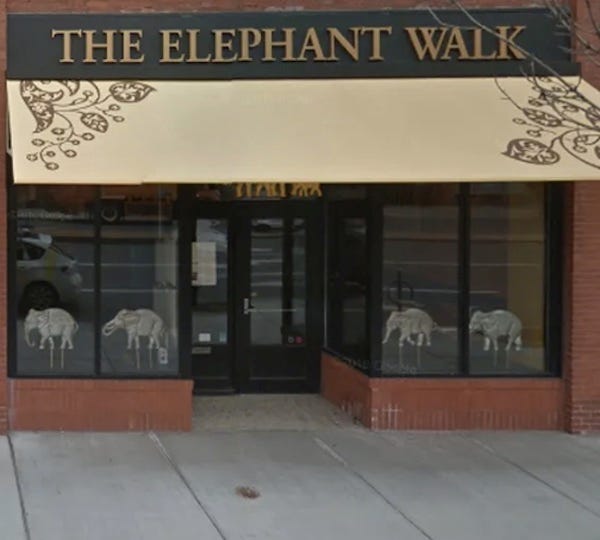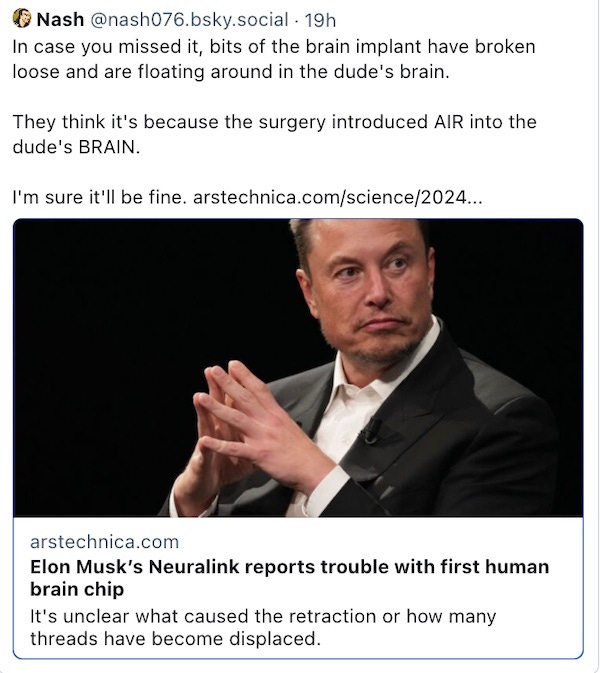Précis
This post is about my greatest problem.
Getting ready for your closeup
Some familiarity with the movie Sunset Boulevard will help. If you’ve never seen that movie, or haven’t seen it recently, to get the most out of this post I suggest spending a minute or two on Sunset Boulevard’s wikipedia page and/or watching a few clips on the internet. Here’s one; it’s all of 23 seconds long:
Giant woman with aircraft carrier
If I had a big house with high ceilings and I had stupid amounts of money I would commission an artist to paint a very large reproduction of this one.
In the stories of the ancient Greeks the gods and goddesses liked to mess around with mortals like you & me by doing things like getting invisible and then stirring up storms to toss their ships around like toy boats in a rooftop bathtub. The poet Homer wrote about such things. They say he sang a good song; they say he had a style.
If Ulysses had sailed in an aircraft carrier instead of his various Homeric galleys the goddess Athena might have knelt over it like the big goddess wearing a sweater vest in this painting. Would she have been Ulysses’ greatest problem? Hard to say.
The Saturday Hypothesis, an idea taking shape
Lately I’ve been thinking a lot about my parents’ dementias. I’ve been gathering notes for an essay about that topic in a draft substack called ‘The Saturday Hypothesis’ —that title coming from an incident involving my brother Mike, our mother, Mom, when she was deep into Alzheimers, and our father, Dad, when he was deep into his own quite different dementia related to removal of a tumor on his brain stem.
Brains and minds, selves and memories, biodigital convergence. These are some of my perennial hobbyhorses.
Sundowning is increased confusion that people living with Alzheimer's and dementia may experience from dusk through night. Also called "sundowner's syndrome," it is not a disease but a set of symptoms or dementia-related behaviors that may include difficulty sleeping, anxiety, agitation, hallucinations, pacing and disorientation. Although the exact cause is unknown, sundowning may occur due to disease progression and changes in the brain.
— Via Alzheimers Association, als.org
Gathering my ideas, figuring out what I’m thinking about, trying to shape inchoate thoughts into something coherent — writing — I find that process very difficult. Which is problematic, because I am trying to make a living as a writer. It is one of my greatest problems.
Elon, RFKjr, brainworm interruptus
I woke up at 4 one morning last week with my brain full of ideas for an essay I’ve been working on about brains. Not ‘The Saturday Hypothesis’ essay, another one. I don’t have a title for it yet. In particular I woke up thinking about brains in regard to Elon Musk — the techbro boy-prince and pretender to the throne of Silicon Valley — and Robert Kennedy, the boy-prince of a political dynasty of the last century who is running for President of these United States, so-called.
Musk founded a company called Neuralink, which manufactures devices to be installed into human brains. Kennedy is an antivaxx looney-tune from Planet Cuckoo-Bananas who recently announced to the world that there was a dead worm somewhere in the matter encased within his cranium.
I woke up thinking about how I could introduce Kennedy and Musk threads into my as-yet-unnamed essay-in-progress on minds and brains, neuroprivacy, and the legacy of the late philosopher Dan Dennett. Dennet was a ‘philosopher of mind’ who thought and wrote a lot about brains and minds.
Also I was thinking about the problem Tuvix, as discussed below.
(Because you read my essay ‘A Scared Firefighter up in the Bucket,’ you of course remember the story about my encounters with Dennett, and how once, during firefighting operations, I found myself thinking about the time Dan Dennett and his fellow philosopher-of-mind Douglas Hofstadter invited me to dine with them at a French - Cambodian restaurant on Mass Ave in Cambridge, Massachusetts.
)
Recently there was an item in the news about how a the first human patient to have a Neurolink device installed into his brain developed problems when some of the ‘threads’ malfunctioned. Here is a post about that from the ‘Blue Sky’ discussion forum:
Sundown Blvd.
During the last days of the Trump presidency, after Trump had lost the election, before Biden had been sworn in, my friend Bijan and I toyed with the idea of writing a screenplay based on Billy Wilder and Charles Brackett’s Sunset Boulevard, set in the White House, with a character based on Donald Trump in the place of Norma Desmond.
The parallels between Desmond’s decaying gothic mansion and Trump’s White House were obvious — the narcissistic has-beens holed up in in their lairs surrounded by kitschy mementos; the deadbeats running from creditors; the sycophantic hangers-on; the grotesqueries and prevailing miasma of decrepitude; the sellouts like Joe Gillis and John Kelly; the thick makeup applied in pathetic attempts to deny passage of time so evident on aging faces — in sum, the inescapable atmosphere of depressing craziness. It would have been easy for us to write a satirical farce — instead of the monkey’s funeral at midnight, for example, we could have had Melania giving a midnight tour of the blood-red Christmas trees — it almost writes itself.


But Bijan and I wanted to do something beyond a mere pastiche — more than a comedy sketch like Carole Burnett coming down the stairs as Scarlett O’Hara. Sunset Boulevard is a movie not just about a faded movie star living in her imaginary glory, it’s also about the decadence and decay of Hollywood.
Sunset Boulevard/Pennsylvania Avenue would need to be not merely about the pathetic clown Trump, but about the decadence and decay of America that his presidency represented — a theme that’s about as far from comedy as it’s possible to get.
Anachronistic break
Rembrandt’s Aristotle Contemplating a Bust of Homer:
When we reach Aristotle we’ll be getting closer to my greatest problem.
Dazzling
Over on Blue Sky, my friend @c0nc0rdance.bsky.social has a thread about the ‘dazzle’ paint jobs that were used in World War One and in the early days of WW2, before the invention of sonar and radar range finding made dazzle-jobs obsolete.
According to c0nc0rdance,
[T]he dazzle wasn't about making the ships harder to see, it was about feeding false data to spotters, and the result was intended to make attacking ships make bad tactical decisions. Subs would line up on the wrong attack line, destroyers plot bad intercept courses, allowing ships to escape.
This business about using bright paint jobs to razzle-dazzle ship-targeters brings to my mind the song Time Loves a Hero, from that great concert album Waiting for Columbus, by Little Feat:
Hear me well Seeing ain't always believing Just make sure it's the truth that you're seeing Eyes sometimes lie, eyes sometimes lie They can be real deceiving
Rosy-fingered dawn
Although I generally try to convince my own brain to let me sleep for another hour or two when ideas awaken me earlier than 5 AM, on that morning when I woke up thinking about the connection between Elon Musk and the Kennedy fellow I realized that there was no point in staying in bed, as the squirming ideas were so insistently roiling.
CNN — Independent presidential candidate Robert F. Kennedy Jr. on Wednesday detailed the medical abnormality he experienced in 2010 that he said was caused by a worm that entered his brain and then died, marking his first public explanation of the incident.
[. . .]
According to the New York Times, which first reported the incident on Wednesday, Kennedy had said during a 2012 deposition, which concerned a divorce from his second wife, that a doctor had told him his health issues could be “caused by a worm that got into my brain and ate a portion of it and then died.”
So, as I said, my ideas were roiling like a ball of worms in my brain; my ideas about Musk and Kennedy and brain threads and so forth would not let me sleep, and that’s why I got up at 4 o’clock in the morning on that day, and set myself down to write.
Yet by the time I had made my first cup of coffee and sat myself down at the desk under the skylight in my attic office through which the first light of rosy-fingered dawn was insinuating itself, my ideas had turned elsewhere. There would be no brain-essay work for me that morning, they (my ideas) said. Instead, they said, I would be thinking of line from a poem I had first read many decades earlier, and about a fortune I got in a fortune cookie the very first time I had sat down in any restaurant, anywhere, to dine with that molecular biologist with the great figure that I believe I have mentioned here before.
By the way, I lifted that chip-in-brain image from the article entitled “Elon Musk’s Neuralink puts its first chip in a human brain, but faces a long road ahead — and a potential nightmare scenario” in PsyPost.org. The image was attributed to “OpenAI's DALL·E”. But that’s just fucking bullshit. It’s like attributing the painting of Aristotle with the bust of Homer to Rembrandt’s paints and brushes. Give me a flipping break, will you please?
Well, will you look at the time!
Once again I’ve gone on too long and gotten to the Substack “almost too long for email” warning, so I’d better wrap this one up, even though I’ve left many threads dangling — and never even got to the Problem of Tuvix at all. I promise I’ll get to Tuvix and tie up at least some of those threads in part two of this essay, coming Real Soon Now.
But I think it’s only proper to give you at least some hint of where this is all going — how Norma Desmond and Donald Trump and the screenplay that wasn’t, and dazzling warships and paintings of giant women toying with warships, and notions of fate in Greek mythology, and brains and selves and minds and parents with dementia and a line in a poem that supplanted my two-brain thoughts at 4:14 AM one recent morning, and a fortune-cookie fortune and Aristotle contemplating a bust of Homer all relate to the title of this essay, which is, of course, “My greatest problem.”
Here is what Wikipedia has to say about Aristotle’s philosophy of causation:
The four causes or four explanations are, in Aristotelian thought, four fundamental types of answer to the question "why?" in analysis of change or movement in nature: the material, the formal, the efficient, and the final. Aristotle wrote that "we do not have knowledge of a thing until we have grasped its why, that is to say, its cause." While there are cases in which classifying a "cause" is difficult, or in which "causes" might merge, Aristotle held that his four "causes" provided an analytical scheme of general applicability.
Aristotle's word aitia (Greek: αἰτία) has, in philosophical scholarly tradition, been translated as 'cause'. This peculiar, specialized, technical, usage of the word 'cause' is not that of everyday English language. Rather, the translation of Aristotle's αἰτία that is nearest to current ordinary language is "explanation."
So there you have it. In part two of this essay we will be looking at “why?”
Cheerio!
Edit 6/12/24: The essay continues at My greatest problem, part two (Yes, that is some kind of bust).











Excellent. Keep going.
If you haven't read Olivia Nuzzi's reporting on Trump, she's leaned heavily on the "Sunset Blvd." comparisons as well:
https://archive.is/7N4uk